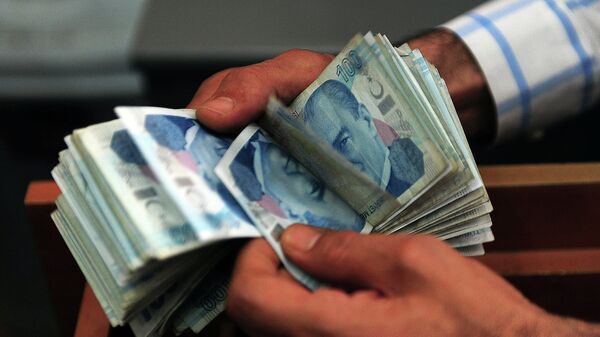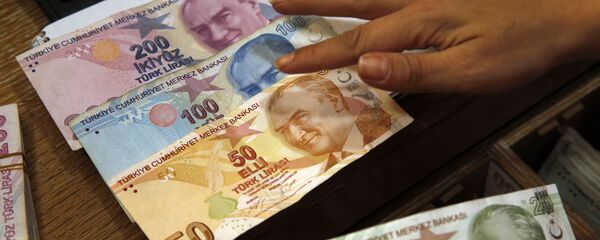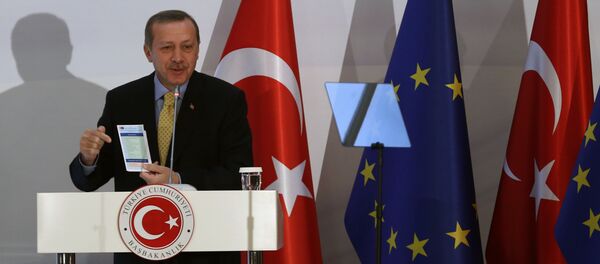Kristian Rouz — International investors are expressing their increasing scepticism over Turkey's international gold and currency reserves after a 2-percent plunge in the lira this past Thursday. The reluctance of the Turkish central bank to explain the actions it's taken in response to this latest development adds to the worries over the sustainability of Turkey's financial system.
The lira's latest round of devaluation happened on the heels of reports claiming the Turkish central bank was using the money it borrowed from commercial lenders to improve its foreign reserve balance sheet. The regulator has refrained from commenting on the speculation.
READ MORE: Turkey 'De Facto' Established Safe Zone in Syria Up to Manbij — Ankara
Turkey has faced mounting financial woes since mid-2018, when the lira was devalued after several rounds of interest rate hikes by the US Federal Reserve, and amid the heightened geostrategic tensions between NATO-member Turkey and other members of the alliance.
This year, the lira has dropped another 10 percent, as the Turkish government has delayed key economic reforms amid the rising political tensions within the country.
"There's a general unease about what's going on behind the scenes", Tim Ash of BlueBay Asset Management said.
Experts say this outgoing week's reports of Turkey's alleged purchases of foreign currencies have contributed to their concerns over the sustainability of the Turkish financial system.
"We can see with the Financial Times story that concerns regarding central bank reserves have increased", an anonymous Turkish currency trader said, as quoted by Reuters. "We cannot say that reserves are in a very good situation but contrasting stories and comments recently show the subject has not been well analysed, explained, and calculated".
If the central bank struggles to put that money back into the country's financial system or requests a restructuring deal from the banks, Turkey's ability to withstand another possible wave to the lira crisis could be significantly jeopardised, economists say.
"I don't think these are conventional operations and they are somewhat less than transparent", Julian Rimmer of Investec Bank said. "A central bank cannot risk being seen as economical with the truth".
READ MORE: Scholar Suggests Russia's S-400 Could Spark US-Turkey Political, Military Crises
The Turkish central bank, however, has confirmed it had borrowed the dollars that were subsequently added to its foreign currency reserves. Central bank officials said the borrowed money was recorded as an "off-balance sheet item" — raising further questions about the transaction's transparency.
Meanwhile, the nation is facing $177 billion in short-term debt obligations maturing over the coming 12 months. It remains unclear how Turkey will repay or restructure this debt amid the ongoing economic recession in the country. The nation's GDP contracted 2.40 percent in 4Q18, after dropping 2.4 percent and 1.6 percent in the previous two quarters.
"Instead of providing investors with the reassurance that reserves are rising, the use of swaps has done the opposite as today's price action in USD/TRY implies", Piotr Matys of Rabobank said.
Meanwhile, the lira is said to be facing additional downward pressure amid turmoil in the recent municipal elections in Ankara and Istanbul. As the ruling AK Party is facing diminishing voter confidence, a resurgence of its Kemalist rivals might suggest tensions could flare up over the coming few months.
Coupled with the ongoing recession, political woes could deal another blow to Turkey's investment appeal.






